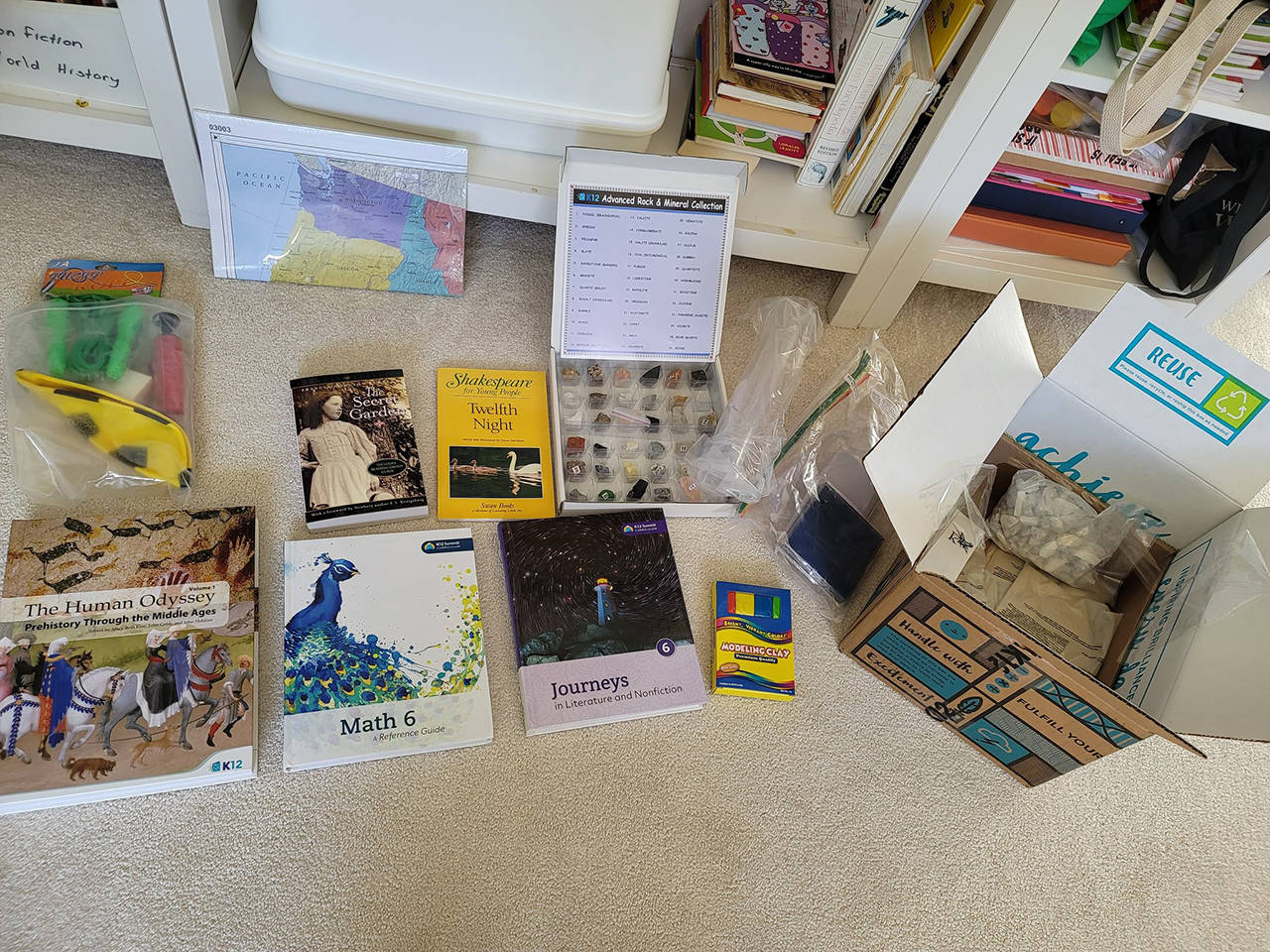October is Dyslexia Awareness Month. My sixth-grader has dyslexia, a learning disorder that the Yale Center for Dyslexia and Creativity says impacts up to 20% of the population.
Dyslexic individuals need specialized, multi-sensory instruction to upload phonemes — the building blocks of language — to the brain.
For my daughter, this has meant countless hours of tutoring, starting in first grade. For years, she put in a full day at school, came home and completed homework, and met with her dyslexia and math tutors four times a week on top of all that.
This extra help has been at our expense, and has kept my daughter at grade level. But because she’s at grade level, the school district wouldn’t provide any extra support beyond accommodations like having extra time to complete tests.
Critics call this the “wait to fail” model. Schools wait for kids to fall two grade levels behind before they offer help. Kids whose parents can’t pay for private tutoring suffer, and then when the schools do offer help, they usually don’t deliver the specialized dyslexia intervention needed, like the Slingerland, Orton-Gillingham, Wilson Reading System, Wired for Reading or Lindamood-Bell approaches, even though three of these curricula originated in Washington.
Our district’s move to virtual schooling meant that my daughter risked losing all the ground she’d fought so hard to gain. For this reason, I withdrew her from our local school district, and enrolled her in the Omak district instead, so she could join Washington Virtual Academy. Known as WAVA for short, it is a free public school program specifically designed for at-home instruction, operated by the company K12.
WAVA uses classes taught by certificated teachers from Washington state, multimedia learning modules such as videos, quizzes and nonfiction articles, traditional textbooks and hands-on materials. It does require significant help from the student’s learning coach which, in my daughter’s case, is me. She works from 9 a.m. to 2:30 p.m. daily, and I sit next to her for half of that.
Educationally, WAVA has been outstanding. My daughter has made huge gains in math. Part of that is because I sit next to her, helping gauge her understanding. Receiving instant feedback also helps her learn. With WAVA, she finds out right away if she makes an error, and the learning module teaches her how to figure out the correct answer.
I’m also impressed by the level of science and social studies she’s learning. Our local elementary school taught either/or. They taught science or social studies, but usually not both at the same time. In WAVA, my daughter is learning about the ancient Sumerians for world history, at the same time she studies rocks and minerals in science.
It’s the language arts class that has really been eye-opening to me as the mother of a dyslexic child. A big push in public schools over the past 20 years has been to focus on reading complete books instead of textbooks. This pedagogy comes from the Balanced Literacy approach to teaching reading. For most learners, this is fine. But what about the up to 20% of kids who are dyslexic?
Part of having dyslexia means sustained reading for long periods of time can be tiresome. That’s why audiobooks are so important. Many dyslexic individuals can read at or above grade level for 15 minutes. But ask them to read for two hours, and reading becomes torture.
Compare this to weight lifting. If someone asked me to perform five bicep curls with a 15-pound weight, I could do it. But if they asked me to do 200 bicep curls, I couldn’t, not with a 15-pound weight. I would need to drop down to a three-pound weight to accomplish that level of endurance.
For my daughter, learning from a traditional textbook with short stories, nonfiction articles, plays and poetry, is a game-changer. It builds reading-comprehension muscle in short bursts without pushing her to exhaustion. Later this year she will read “The Secret Garden” and Shakespeare’s “Twelfth Night.” Longer texts are on the horizon, but not the continual endurance training that frustrates so many neurodiverse kids.
The best part of this year has been not needing tutoring. Instead of coming home from school already burnt out, and then having homework and tutoring to contend with, my daughter gets all of her learning done by mid-afternoon.
We are one of the WAVA families who never would have chosen this option if not for the pandemic. But now I realize it’s the academic gift she needed all along.
I’m not sure what we’ll do once the pandemic is over. My daughter really misses her friends. Devoting so much time to being her learning coach has greatly impacted my work schedule. We will probably send her back to brick-and-mortar school — eventually. But whatever path she takes will be easier to walk because of WAVA. Difficult times have led us to surprising choices, and for that, I am grateful.
Jennifer Bardsley publishes books under her own name and the pseudonym Louise Cypress. Find her online on Instagram @jenniferbardsleyauthor, on Twitter @jennbardsley or on Facebook as Jennifer Bardsley Author. Email her at teachingmybabytoread@gmail.com.
Talk to us
> Give us your news tips.
> Send us a letter to the editor.
> More Herald contact information.

























